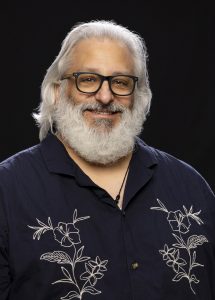Jason Daniel-Ulloa, associate teaching professor in the Departments of Health Systems and Population Health and Global Health, has been awarded the University of Washington’s Distinguished Contributions to Lifelong Learning Award. Presented as part of the UW’s 2025 Awards of Excellence, the honor recognizes full-time faculty who have demonstrated a sustained commitment to teaching and designing courses in non-degree programs that serve professional development, personal growth, and career transformation.

But behind the distinction lies a deeper story of connection, empathy, and an unorthodox path to education. For Daniel-Ulloa, teaching is not simply about conveying information—it’s about creating space for students who, like him, may have once felt unseen.
“I have a very student-focused orientation to teaching,” he says. “I am focused and centered on how students experience the university.”
That focus stems in part from Daniel-Ulloa’s own academic journey. “I was not a prototypical student,” he recalls. “I always felt very invisible in class, and I struggled a lot to figure out what people meant.” Rather than let those early challenges define him, he has drawn on them to shape a teaching approach that prioritizes inclusivity and visibility.
His teaching philosophy took further root during his postdoctoral work, when he engaged in community-based participatory research (CBPR). “As I started gravitating more towards teaching as a career, not having any formal pedagogy training, I just sort of adapted CBPR to teaching,” he explains. That adaptation means honoring students as co-creators of knowledge and shaping learning environments that are collaborative, grounded in real-world relevance, and responsive to diverse experiences.
This empathy-driven method has helped Daniel-Ulloa connect with students who may also feel marginalized or underrepresented. “The students who do feel compelled to talk to me tend to have experienced that same kind of invisibility that I did, and not feeling represented, not feeling heard in the classroom,” he says. “So, I think that’s one of the ways that we connect.”
In addition to his innovative teaching, Daniel-Ulloa’s intellectual passions also shape his classroom. “I spend a lot of time thinking through and wanting to write about systems of oppression,” he says. “I really get excited thinking about it, reading about and writing about the construction of gender, race, and ethnicity. And how that, within history, has affected health and public health and how it also affects how I teach, how I approach teaching.”
The Distinguished Contributions to Lifelong Learning Award affirms what his students and colleagues already know—Jason Daniel-Ulloa’s classrooms are spaces where every student has a chance to be seen, heard, and empowered.